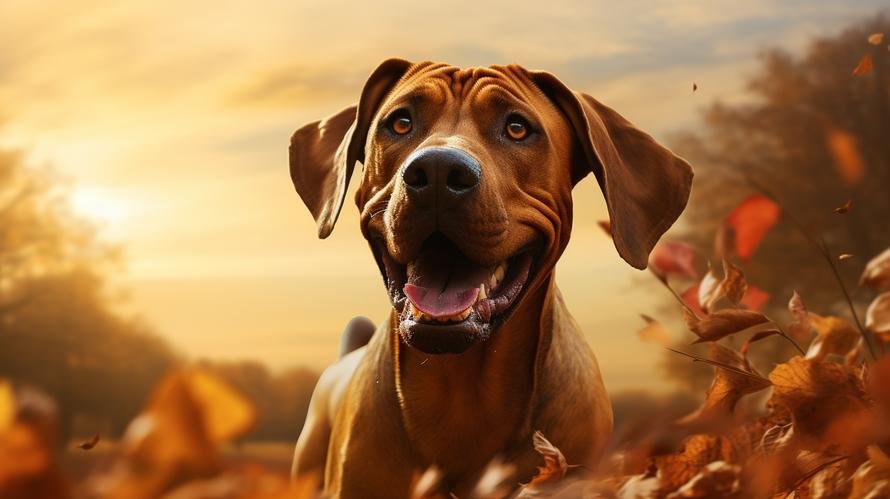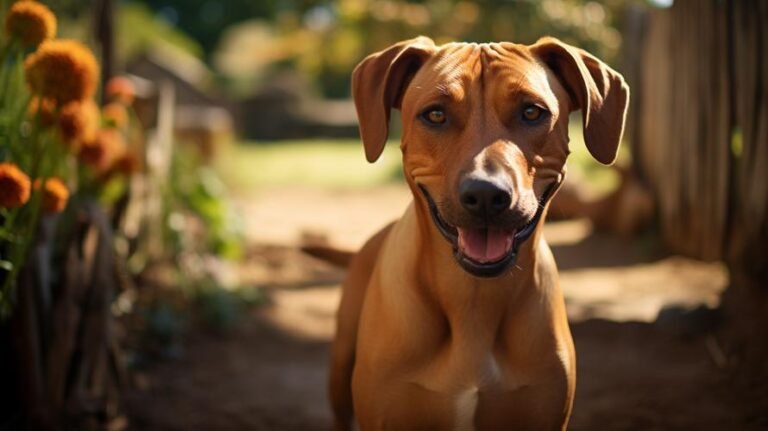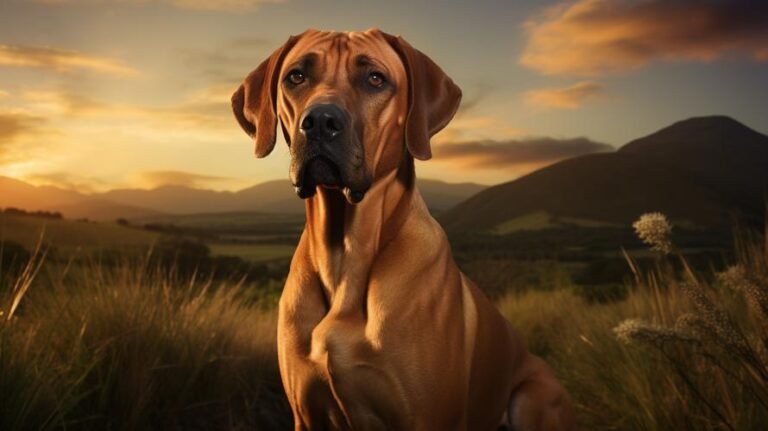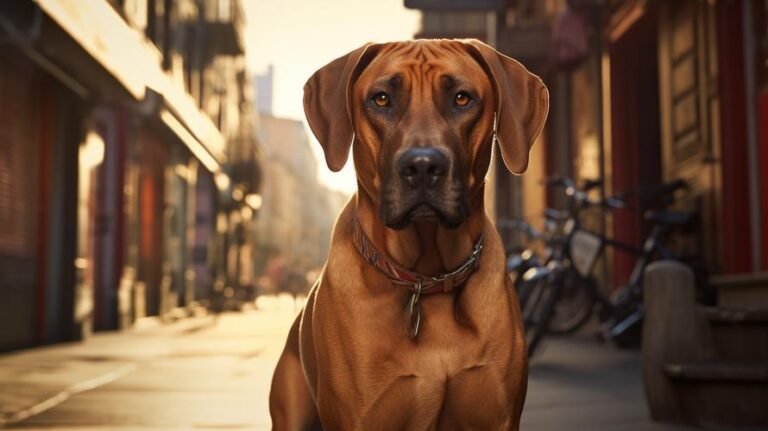Did you know that the ancient ancestors of the splendid Rhodesian Ridgeback were wolves? Yes, you read that right, this breed is descended from one of nature’s most rugged and resourceful hunters, yet today, they are known for their friendly and even-tempered nature.
Guardian of the homestead, loyal companion, and a lover of long, playful walks, Ridgebacks stole the hearts of many dog owners worldwide. Yet, beneath the muscular physique of the Rhodesian Ridgeback lies a unique dietary requirement. You cannot feed these ancient-wolf descendants just any kibble you find on the supermarket shelf. These majestic creatures have special dietary needs that, if not met, could potentially lead to health problems.
The Rhodesian Ridgeback and High-Quality Protein
Let’s start with the most important component of a Ridgeback’s diet – Protein. Proteins are the DNA of a healthy Ridgeback’s meal. They contain essential amino acids that help grow, repair, and maintain muscles. Protein also plays a key role in forming new skin cells, growing hair, making nails, and generating new blood cells. Without enough protein in their diet, Ridgebacks are prone to losing their muscle mass and having duller coats.
Remember, not just any protein will do. Here’s a mind-boggling fact – there’s a stark difference between animal-based and plant-based proteins. Rhodesian Ridgebacks thrive on animal-based proteins. The reason is simple – animal proteins contain all the essential amino acids that these strong, athletic dogs need. So choose dog food rich in animal-based protein, or better still, supplement their meal with home-cooked meat or fish.
Fats and Omega Fatty Acids
Next up are Fats! Sure, ‘fats’ is a word that’s been demonized in human diet conversations, but for Rhodesian Ridgebacks, fats are crucial. Fats provide the most concentrated source of energy for these active dogs. Guess what? They’re also what makes food taste good for our furry friends, so skip the fat-free labels.
Equally important are Omega-3 and Omega-6 fatty acids. You may have heard of them, and rightly associated them with heart health. But did you know they’re also fantastic skin and coat conditioners? Omega-3 fatty acids are particularly beneficial for Ridgebacks as they reduce inflammation, helping these dogs breeze through their active lifestyle without falling prey to inflammation-related ailments.
Carbohydrates, Vitamins, and Minerals
Poor old carbs often get a bad rap in both human and canine diets. However, while excessive carbohydrates can lead to obesity in Rhodesian Ridgebacks, a right amount can provide an excellent source of energy. After proteins and fats, healthy carbs should constitute around 25-30% of your Ridgeback’s diet.
Micronutrients make a big difference too. Vitamins are essential for various bodily functions. For example, Vitamin A improves vision, maintain healthy skin and coat while Vitamin D supports bone development and healthy metabolic function.
Minerals like calcium and phosphorous help to maintain strong bones and teeth, while potassium aids proper nerve and muscle functions.
Here’s a little-known secret – Try feeding your Ridgeback fruits and vegetables. They are a great source of vitamins, minerals, and carbohydrates, plus they add a little snack-time variety for your pet.
Watch the Calories and Keep Them Hydrated
Rhodesian Ridgebacks need around 1,800 to 2,800 calories per day, depending on their age, size, and activity level. Puppies require extra energy for proper growth and exercise, thus necessitating a higher calorie per day. Be cautious with your Ridgeback’s calorie intake to stave off obesity and related health issues.
Last, but certainly not least, is water. Water is as vital for dogs as it is for us. Make sure your Ridgeback always has access to fresh and clean water.
The Rhodesian Ridgeback diet revolves around a delicate balance between proteins, fats, carbohydrates, vitamins, minerals, calories, and of course, water. Regular check-ins with your vet can also help ride the wave of dietary changes as your Ridgeback grows from a playful pup to a dignified grown-up.
There you have it; these dietary requirements might make it seem as though Rhodesian Ridgebacks need special dog food, but in reality, they just need a well-balanced diet filled with high-quality ingredients. Take care of your Ridgeback’s dietary needs, and they’ll reward you with years of loyal companionship and unconditional love.



